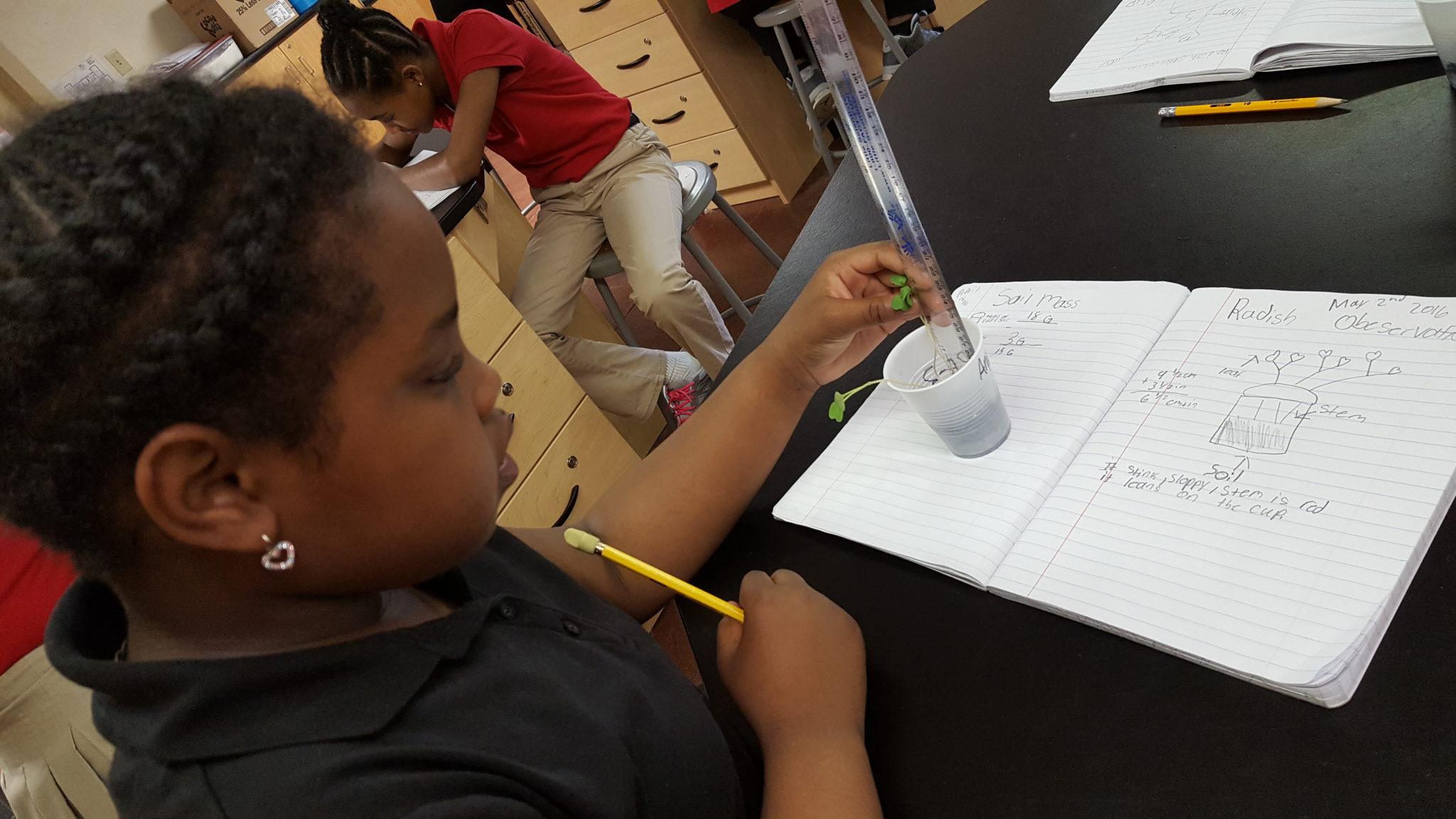
With springtime’s natural beauty all around us, many teachers are using nature to impact academic lessons. Teaching about Mother Nature — as well as the design process, engineering and other seemingly unrelated fields — is the goal of two gardening projects at Dayton Early College Academy (DECA) and DECA Prep. To give us background on the projects, we contacted Tracy Martz, director of STEM Initiatives at DECA.
Q: Tell us about these gardens. Who will build and maintain them, and what is the construction timetable?
Our goal is to create a community of learners at DECA and DECA Prep in the STEM track. To that end, students will design components of a rooftop urban garden at DECA as well as a community garden at DECA Prep. Although we have not obtained approval for the rooftop garden, students initially will work in the community garden.
DECA students will design and build components such as flower boxes, watering systems, birdhouses, bean tepees and benches. As for the plants, students are starting them in the classroom using a small greenhouse with lights. Then students will transfer the plants to the community garden.
Our vision was to finish the construction and clearing of beds by the end of the school year. However, with help from the community, DECA and DECA Prep, we have completed most of the construction. Maintaining the garden is a group effort. Tasks such as mowing are done by our landscaping staff as well as the occasional teacher; weeding and planting are the responsibilities of students. It is integral that the students take ownership at an early age.
Q: Where will financing come from?
Wright State University has given us $1,000 for a fence. The university also allowed preservice teachers to work with kindergarten students as they investigate, collect data and track the life cycle of plants. Modern Woodmen, a fraternal financial services organization, supplied funds as well as labor to help with construction. A group from Green Apple Day of Service that works underneath Roger Platt of the U.S. Green Building Council supplied funds, volunteers and design assistance. Five Rivers MetroParks gave us advice, materials, funding and seeds. Finally, we received a grant from the Battelle fund at the Columbus Foundation to pay for gardening tools, seeds, lumber, stones and other engineering items.
 Q: What could students at DECA and DECA Prep learn from these projects?
Q: What could students at DECA and DECA Prep learn from these projects?
Students are learning life skills from working with the garden — respecting plants and identifying their needs, collecting and graphing data, writing and journaling their findings, as well as developing responsibility and a connection with nature. Additionally, older students are mentoring younger ones. All are seeing the design process in action.
For example, the kindergartners created bricks with paver’s sand, glue and water after reading The Three Little Pigs. Then students tested the bricks after they were exposed to various temperatures and weather conditions such as wind and rain. Students determined the best recipe to make paving bricks for the garden.
Q: Will the communities around the schools be involved in the garden projects? Will the school partners have a role?
DECA teachers and students will engage community members and partnerships in the Dayton area such as the Five Rivers MetroParks, Wright State University, University of Dayton and the Five Oaks neighborhood. Students will learn about various careers in botany, engineering, biology, water quality and chemistry via guest speakers and community partnerships. This will allow all grade levels, teachers and community members to learn from one another. In addition, this demonstrates the importance of community engagement and networking to instill these soft skills with our students.
Q: Once the gardens are up and running, how will they figure into the schools’ curriculum?
After the first year of the STEM track project, we hope to create a unit for each grade level K-3 on an aspect of the garden. For example, in kindergarten we might focus on butterflies, plants in the garden they are attracted to and how to create a butterfly garden. The goal for kindergarten especially is to have the gardens provide an umbrella for all standards to work into. By being involved with the planting of different things in different seasons, students can experience standards in an authentic way that ties to their own life.
In addition, older students might investigate terrarium boxes, photosynthesis, rapid-growth plants, entomology or botany. Materials and tools from this project will be used in the engineering courses to test designs for circuit boards and build model bridges for future implementation in the garden, birdhouses or frames.
 It is imperative the students understand the design process for the layout of the garden, its maintenance and potential expansion. Students might design watering systems focusing on energy conservation, layouts for flower beds, hydroponics or a storage area for the food harvested. Produce from the garden will be used to teach about nutrition by creating and testing recipes. Food will also be donated to area food kitchens and shelters.
It is imperative the students understand the design process for the layout of the garden, its maintenance and potential expansion. Students might design watering systems focusing on energy conservation, layouts for flower beds, hydroponics or a storage area for the food harvested. Produce from the garden will be used to teach about nutrition by creating and testing recipes. Food will also be donated to area food kitchens and shelters.
The STEM track project will connect schools of the Dayton community by having them come together to work on a common project. In time, the garden might expand to a farmers market designed and run by students. This STEM project will engage the students, faculty and Dayton community, bringing diverse learners together.
Students can utilize the skills learned from this experience in their future endeavors at home, college, or as they travel with DECA faculty to complete work for Habitat for Humanity. In addition, research shows the importance of students connecting with nature and allowing their natural creativity to blossom outdoors. What better way to do this than with a garden?
Q: Anything else our readers should know about these projects?
For students at DECA and DECA Prep to be successful, they need a variety of authentic learning experiences to widen their world view and expand their understanding. The support from the community and other organizations has been overwhelming, and as a school we look forward to helping our garden expand in the future.
To learn more about other projects at Dayton Early College Academy and DECA Prep, visit https://www.daytonearlycollege.org.